Wednesday Feb 25, 2026
Wednesday Feb 25, 2026
Saturday, 29 June 2024 00:01 - - {{hitsCtrl.values.hits}}
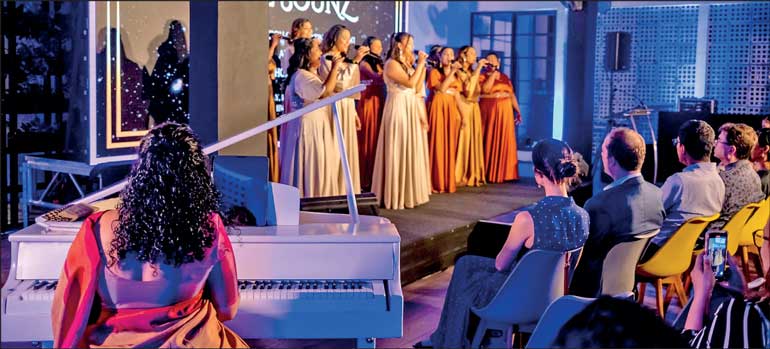
Soul Sounds choir performing with Soundarie David Rodrigo at the piano
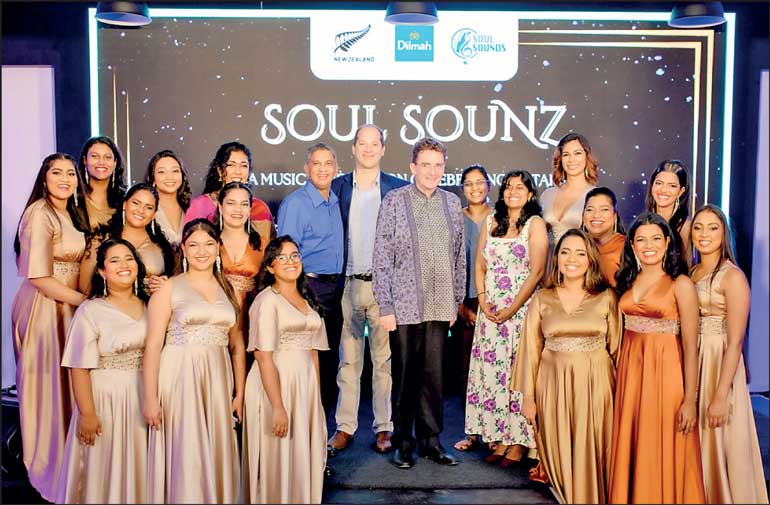
The Soul Sounds choir with the New Zealand High Commissioner and diplomatic representatives
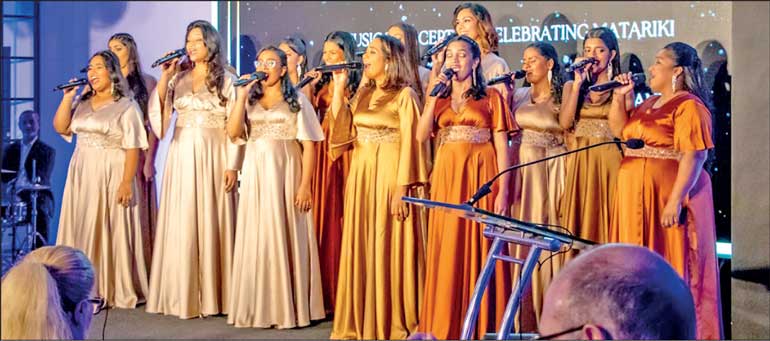
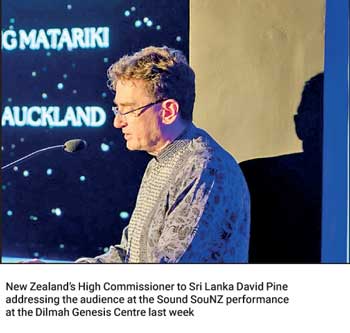 By Surya Vishwa
By Surya Vishwa
Stars. Let’s start with stars. The ones in the sky. Those minute eyes watching over this darkened world.
The bane of modern life is that many of us are obsessed by the idea of being busy looking up at our cosmic roof, either by day or night.
However, if we do look up at our earth’s roof after this planet’s daytime lighting system, the sun, has gone to slumber, we will see the tiny glistening waking fireflies of the heavens. Amongst these clusters of stars are the ‘Seven Sisters; Maia, Electra, Alcyone, Taygete, Asterope, Celaeno and Merop, also known as the Pleiades or as Messier 45. In ancient spiritual beliefs woven around the skies these stars were described as nymphs in the train of Greek Goddess Artmesis, patron of the moon, chastity, childbirth and animals.
In the astronomy and star lore of the Maori people, in the ancient land of Aotearoa which is generally known in our post-colonial global context as New Zealand, this cluster is called the Matariki which is an abbreviation of ‘Ngā Mata o te Ariki’ – The Eyes of the God. They appear in the north-eastern horizon at dawn, as explained by Dr Rangi Matamua (Tūhoe) associate professor at the University of Waikato, in his book Matariki: The Star of the Year.
These stars arrive generally from late May to mid July and this lighting up of our nights is celebrated as the dawn of new hope for this earth, a new beginning, a new fertility and abundance, and marks the Aotearoa new year, the new year of New Zealand.
This year Matariki was commemorated on Friday 28 June.
Meanwhile, the closest sounding name to Matariki is Makali’ which means eyes of royalty in Hawaiian and known as Saburu in Japan which is interpreted as ‘gathered together’.
Throughout this world, before we were indoctrinated with the post-industrial, post-indigenous genocide, post-colonial education system that has sterilised the world with the beatification of Western Science and its affixed education, the human connections with the sky and the body of earth had the respect it deserved.
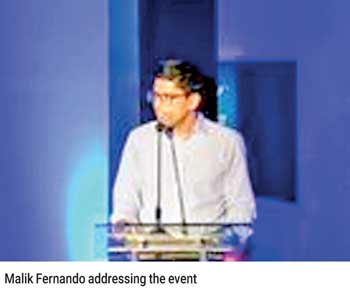 Thus, with every annual emergence of the clearest viewing of the Mataraki constellation, the message of renewal, vitality and benevolence of the mother earth’s mission to sustain her human children were celebrated by the Moriori and Maori people, the first nations of New Zealand.
Thus, with every annual emergence of the clearest viewing of the Mataraki constellation, the message of renewal, vitality and benevolence of the mother earth’s mission to sustain her human children were celebrated by the Moriori and Maori people, the first nations of New Zealand.
The theme for 2024 as set by New Zealand is Matariki Hera Kai meaning the feast of food, stemming from an indigenous Maori proverb that describes the significance of the Matariki as the bringer of food, according to Prof. Rangi Matamuo who serves as chief advisor of the Ministry of the Ministry of Culture and Heritage.
What the world can learn from New Zealand
If there was one country that has conscientiously and authentically learnt from its past colonial crimes and work towards moulding a national identity of indigenous heritage as a matter of daily national policy it is New Zealand. This is also a country today known for respecting diversity in faith and cultural practices as well as giving due place to female political leadership. The Harmony page which is dedicated to mainstreaming culture, heritage and indigenous knowledge within contemporary economic as well as policy discourses while working towards the education of its use in contexts of local and global peacebuilding and spiritual awareness will be hoping to unravel further the New Zealand example of national internalisation of that which is indigenous.
Sri Lanka’s globally award winning choir Soul Sounds performs Maori cultural classics in Colombo
Sri Lanka received a glimpse of how New Zealand has centralised Maori heritage into national relevance when High Commissioner David Pine explained his country’s pride of the Maori legends, values, spirituality and indigenous astronomy.
“Matariki is a special occurrence of a cluster of stars in the Orion constellation. They appear during the waning of winter in Aotearoa – New Zealand which follows the lunar calendar. The stars thus have across time carried the message to the ancient people of Aotearoa that soon the difficult times will be over, signifying the message of hope, abundance and resilience that Matariki carries,” shared High Commissioner Pine.
He was speaking at the special event hosted by Dilmah on 14 June at its Genesis Centre in Maligawatta to showcase the musical enthralling of the Sri Lankan choir Soul Sounds ahead of their departure to attend the largest international choir competition, World Choir Games, hosted this year by Aotearoa. The New Zealand High Commissioner in his brief felicitation following the heavenly performance of the Soul Sounds choir at the Soul SouNZ event, ended his words with ‘Well, we hope Soul Sounds wins.’ His words naturally drew intense applause from the audience.
We will digress slightly here to make a note of how a diplomat’s simplicity right down to non-pompous attire and humble/respectful demeanour can be a major game changer in how a nation is reflected through just one human being who leads that representation internationally. This is the impression that David Pine made while attending his first public attendance after taking over as High Commissioner to Sri Lanka just a week earlier.
“Of all the competing choirs around the world, we must be the only choir to officially be sent off represented by the New Zealand government,” quipped Soundarie David Rodrigo, Sri Lankan pianist, accompanist, music director and music educationalist who founded the Soul Sounds choir in 2004, originally with the students of Holy Family Convent in Bambalapitiya.
The Genesis event suitably themed Soul SouNZ was conceptualised to integrate the Maori New Year, Dilmah’s enthusiasm in assisting public endeavours that intersect into many dimensions including aesthetics, arts, nature conservation as well as responsible entrepreneurship. Above all the performance of Soul Sounds at Dilmah’s historic business pioneering premises where Merill Fernando started his tea company around four decades ago, now introduced as Genesis for use by Sri Lankans with progressive projects and social visions, reflected the magnanimity of New Zealand to engage in genuinely humanistic cultural diplomacy.
The event was officiated by Malik Fernando, co-chair of MJF Holdings Ltd., and attended by diplomats and music enthusiasts who learnt through the brief words shared by Malik about the important role New Zealand played in supporting the promotion of Sri Lankan tea when Merill Fernando began his life mission of taking the authentic taste of Lankan tea to the world. We hope to soon feature a brief interview with Malik Fernando on the topic of tea and integrated diplomacy where we will focus on this aspect further in our future editions.
Meanwhile the enriching one hour of the Soul SouNZ performance communicated to every individual present the powerful role of music in bringing our warring world together. The choir performed Maori spiritual hymns/ballads and a general cross cultural selection that included spirituality but also included high beat popular songs as well as Sri Lankan favourites.
The event was initiated by Dilmah and the New Zealand High Commission to posit Soul Sounds locally and internationally to better help them to get the support they still need for the costs of representing Sri Lanka in the best befitting manner in this prestigious annual competition.
“When I obtained an appointment with the New Zealand High Commission in Colombo I did not know what to expect. I certainly did not expect this event, where we as a choir are encouraged with an official send off by the country that is hosting the International Choir Games!” continued a beaming Soundarie.
Sri Lanka is a country without a policy for mainstreaming artists and art into the national economy. Mainstreaming art and artists into the economic revival discourse has never occurred since independence from the British in 1948 and not even in the past two years where there is much pulpit political verbal barrage on reviving the economy. This page has repeatedly ideated on this aspect after travelling into rural most areas of Sri Lanka where artistes are forced to work as security guards, cleaners or labourers. We have interviewed scores of both local and international artistes on what a policy concerning the mainstreaming of art and artistes into a national economy should entail and repeatedly published this material alongside our research based recommendations. We will continue in this mission.
Despite the bleak almost non existing support at national level for politically neutral artistes, Soundarie David Rodrigo could be described as a one woman guided representation of Sri Lanka’s international level talent who has in the past twenty years performed in well over twenty countries.
As Soundarie pointed out with just weeks away from representing Sri Lanka at the International Choir Games Soul Sounds was still short of covering the costs needed for the tour.
“We were struggling, begging from people to be able to represent Sri Lanka in 2004. By 2024 nothing has changed,” Soundarie stated at the Soul SouNZ event.
This brings us to the point of noting that a country’s success is not just about Gross Domestic Product (GDP). The Gross National Aesthetic of a nation will in fact stabilise a nation’s creative ability to ideate on entrepreneurship sparing the soul of its consciousness, forestry, indigenous knowledge, compassion and empathy. Pity the nation that proceeds in metallic fury toting a rat race of soulless industry while limiting its cultural identity to empty political pomposity and where heritage representations are cornered into mere circus travel slots (squandering the struggling Sri Lankan taxpayers’ money). Pity the nation where art and culture is represented by those who neither care nor know about the subject they are entrusted to safeguard.
It is within such a macro framework that events such as Soul SouNZ spell out the idealism that is direly needed in the business world and diplomatic arena. An idealism that can be put to ideal practice where sensitivity to art remains alive in the hearts of every industrialist and diplomat as an asset for inspiration whether it is in the economic sector or education system or any other category, to elevate our thought processes to highest interlinked potential for the greater good of man and planet.